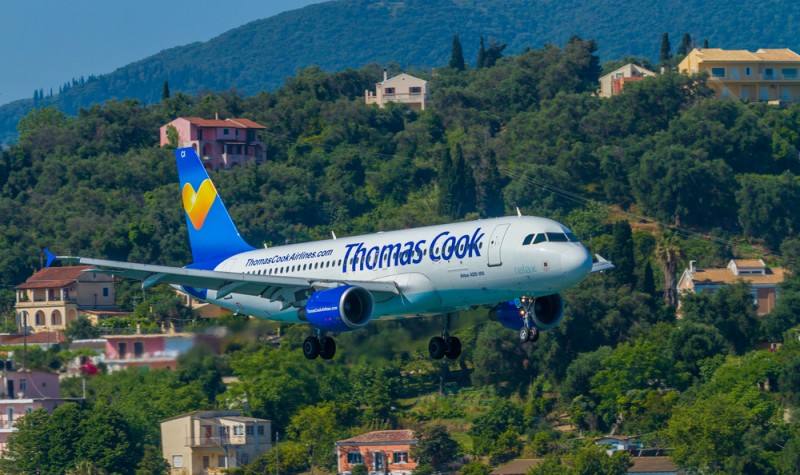Thomas Cook results offer encouragement despite headwinds

Thomas Cook (TCG) has just reported its results for the year to 30th September 2015. As an investment, it is highly speculative because of the absence of net tangible assets and the share’s lack of dividend support. In consequence, it also has a share price that is notably volatile. Way back in July I thought it worth buying for profits recovery when the share price, which was clearly heading south at the time, eventually found resistance. Now, some four months later, the share price has obliged in response to some better than expected and hopeful results for the year to September 30th.
However, for most of this year, the share price has actually outperformed the market in the shape of the FTSE100 Index. Looking at the share price at its current level of 113p (last seen) in relation to the share price this time twelve months ago, it is less than 1% down, whereas the FTSE 100 Index has fallen 5% over the same period.
In short, over a year that has been punctuated by dramatic bursts of bad news, the share has outperformed the Index by over 4%; that is not real money but it is indicative of a good relative performance (pure gold for pension fund managers who do not care how much money is lost provided the portfolio under their management does better than the rest) given the really dreadful news that has stalked the company and its shares over recent months. Thomas Cook’s annus horibilis has included all the publicity and litigation that followed the death of a child in a Greek Villa managed by the company; the death of tourists at the hands of a Jihadist terrorist on a Tunisian beach; the terrorism at Sharm el Sheikh; and most recently, the appalling events in Paris.
The share price which peaked at 162p in May fell to 97.65p this month, from which level it has since bounced 15% on these latest results. The most important aspect of the annual results is probably the fact that, for the first time in a number of years, the company actually made a small net profit after taxation. It was insignificant in size but important psychologically after years of net losses. In margin terms, in the year to 30th September 2015 there was a reported gross profit margin of 22.6%, an operating margin of 2.4%, and a cliff-hanging net margin 0.24%. In the year to 30th September 2015, Thomas Cook was put back into profit, despite all the bad news.
The significance of that performance lies in the fact that the management, in a truly tough year, did what it promised: it made a profit. That gives a new level of trust to the company’s management after period of extraordinary concern and disappointment. Trading profit (EBIT – earnings before interest and taxation charges) is reported as a profit of £211 million, in contrast with an EBIT loss of £115 million the previous year. There were basic earnings of 1.6p a share, in contrast to a basic earnings loss of 8.2p a year earlier. Underlying earnings were reported as being 8.9p. Naturally there was no dividend, though the company reported that it plans to pay a dividend from this year’s earnings on a modest payout basis.
In consequence, the shares at 113p are now selling on 12.9 times underlying earnings of 8.9p for last year. That may be a decidedly tentative basis for valuing these shares but it is at least encouraging for the reasons outlined above.
The management having demonstrated that it can get the company back to net profit in a rough year expresses confidence about its ability to get the company growing profitably. Translating that into market consensus estimates for this year to September 2016, the shares are estimated to make earnings of 11.43p from which 2.88p (just over 25%) is forecast to be paid out as dividends. In short, the shares on this basis are valued on about 10 times forecast estimated earnings with a forecast annual dividend yield of 2.8%, covered nearly four times by estimated earnings. I have found no consensus forecasts beyond this year.
Searching for other supporting fundamentals, there are no significant net assets (something pointed out last July) because of the truly enormous equity gearing after years of loss making operations. The company also expects to pay down its overshadowing debt.
However, in the absence of net assets, there are other things to consider as value indicators. According to the last balance sheet published before these results, the company’s equity (currently capitalised £1.67 billion at a share price of 113p) commands total, enterprise value, assets of a reported £ 5.95 billion – or on my calculations, about some 400p a share. That seems a pretty low valuation of the company enterprise value. The shares also stand at an even bigger discount to sales revenue of £8 billion or so estimated for this current year. That is to say that the current market capitalisation is approximately only 20% of sales revenue – again, a very low value for turnover, which reflects recent losses.
This equity is speculative. It has no historic asset backing, no current dividend, is massively geared and works in a highly competitive industry now plagued by unpredictable international terrorism in the Middle East and Africa. However, it is a big world and the company has produced encouraging results, which prompted a share price rise. Unless you are a widow or an orphan, this may be one to look at as a possible speculative buy for recovery at 113p.
Comments (0)